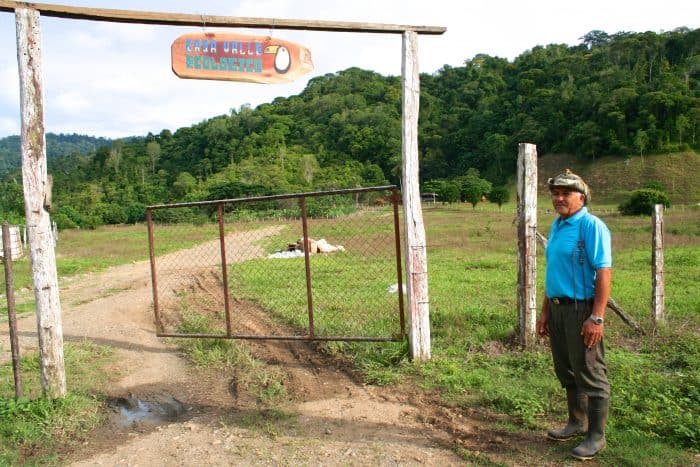It’s been all about publicity (or previous lack thereof) for grassroots rural tourism in Costa Rica. Call it a hunch, but when you plan a vacation to this land of beaches, rain forests, volcanoes and zip-line tours, the words “Let’s see how a rural community uses biofuels” probably don’t pass your lips.
Yet the friendly folks at El Yüe Agroeco Farm, near Puerto Viejo on Costa Rica’s southern Caribbean coast, will proudly show you how they convert pig droppings into the stove fuel that will cook your morning breakfast after a comfy night’s stay in one of their four cabins.
El Yüe is one of 40 community-based associations and cooperatives – many are made up primarily of women or indigenous people – offering visitors a niche experience in Costa Rican grassroots rural tourism. The projects are overseen by the Costa Rican Community-based Rural Tourism Association (ACTUAR).
“Rural tourism is developed and organized by the local community,” explains ACTUAR Director Kyra Cruz. “It’s a planned, integrated tourist experience that benefits the visitor and the community.” The association was formed in 2001 to unite various rural-tourism projects under one umbrella. But the country’s 2009 Rural Community Tourism Promotion Law has been key to the sector really taking off.
“We can be on the same footing as a five-star hotel now,” Cruz says of the law that now gives small tourism projects of three to seven rooms many of the incentives from which they were previously excluded. The reduction of property taxes and tax-free import of equipment have been essential to the financial health of various operations, Cruz says. Minivans and four-wheel-drive vehicles, in particular, have helped propel many small projects to success.
The law also provides for tuition aid from the National Training Institute (INA) for community members who wish to learn English or bone up on their tourism skills. Funding for rural-tourism publicity is also made available, thanks to the law. While ACTUAR’s 180-page, bilingual “Costa Rica Auténtica: La Guía de Turismo Rural Comunitario/The Real Costa Rica: Your Community-based Tourism Guide” has been well-known as the bible of the field, new means of promotion are now at the association’s disposal.
The Costa Rican Tourism Board (ICT) now includes information about rural destinations in its international promotions. Costa Rica’s public television is required to regularly produce features on destinations operated by community groups around the country, and private press outlets are beginning to hop on the rural-tourism bandwagon too.
ACTUAR also manages an active Facebook page (www.facebook.com/actuarcostarica), for now in Spanish only. This best-known of the world’s social-network Internet sites has been a boon to promotion of the field, Cruz says.
“We’ve been able to develop a large network of friends interested in getting to know areas that aren’t so well explored,” she explains. The tried-and-true Rural Tourism Fair has grown each year, Cruz says. This year’sfair, set for Dec. 2 to 4 at the La Aduana center in eastern San José’s Barrio La California, will be the ninth edition of the annual event.
ACTUAR was awarded one of the country’s Certificates of Sustainable Tourism (www.turismo-sostenible.co.cr) in January 2010, one of 39 tour operators here to be so honored, and one of only a handful to be awarded the maximum five leaves. (As befits an award of sustainability, the certificate bestows leaves rather than stars.)
The recognition has bestowed its own publicity on the field of rural tourism, Cruz says. Newest to the mix of rural tourism – so new that they don’t yet appear on ACTUAR’s website – are two projects about to be inaugurated.
A group of residents around Lago Jalapa in northern Costa Rica’s Sarapiquí region is working in cooperation with the Environment Ministry to develop small-scale tourism in a mixed-use forest reserve. The group will offer forest hikes and canoe tours on the lagoon.
An indigenous Cabécar community is about to launch its own rafting tours under the name of JamaiKäri Rafting on the world-famous Pacuare River, on Costa Rica’s Caribbean slope. (The Cabécar name for the river is “Jekui.”) Excursions will also include hiking tours of the nearby Nairi Awari Indigenous Reserve, where the group will operate its own lodge.
For more information about ACTUAR and its offerings, visit www.actuarcostarica.com.









